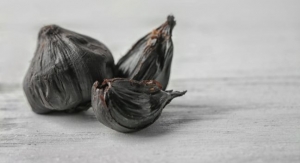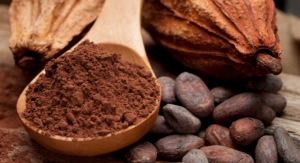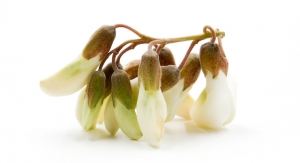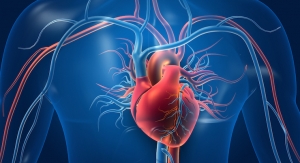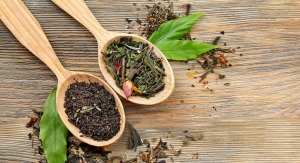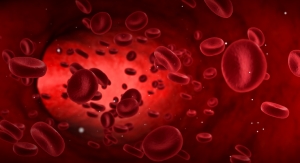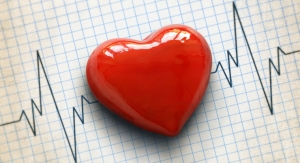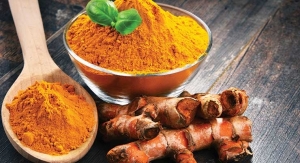Joanna Cosgrove, Online Editor05.07.12
Heart disease continues to be the number one cause of death in the developed world and according to research presented at the recently held 243rd National Meeting and Exposition of the American Chemical Society, the spicy component of a commonly enjoyed group of veggies may hold piquant promise.
Capsaicinoids, a family of substances that give cayennes, jalapenos, habaneros and other chili peppers their heat, has already been established as beneficial in topical creams used to treat arthritis and certain forms of pain. Past research has also suggested that chili-spiced food can lower blood pressure in people with that condition, reduce blood cholesterol, and ease the tendency for dangerous blood clots to form.
In a study led by Zhen-Yu Chen, Ph.D., a professor of food and nutritional science at the Chinese University of Hong Kong, researchers set out to investigate the effect of dietary capsaicinoids on functionality of blood vessel, metabolism of cholesterol as well as gene expression of transporters, enzymes and receptors involved in cholesterol homeostasis.
“Our research has reinforced and expanded knowledge about how these substances in chilies work in improving heart health,” said Dr. Chen, who presented the study. “We now have a clearer and more detailed portrait of their innermost effects on genes and other mechanisms that influence cholesterol and the health of blood vessels. It is among the first research to provide that information.”
The team fed hamsters high cholesterol diets. The hamsters were divided into two separate groups. One group was fed capsaicinoids and the other of which was not. At the conclusion of the study, Dr. Chen and his team found that the capsaicinoids inherent in hot peppers helped promote a healthy heart and reduce heart disease risk in two ways.
The team found that capsaicin and a close chemical relative boosted heart health in two ways. They lowered cholesterol levels by reducing accumulation of cholesterol in the body and increasing its breakdown and excretion in the feces. They also blocked the action of a gene responsible for making arteries contract and expand, thereby influencing the flow of blood to the heart and other organs. The blocking action allows more blood to flow through blood vessels.
Secondly, capsaicinoids also blocked the activity of a gene that produces cyclooxygenase-2, a substance that makes the muscles around blood vessels constrict. By blocking it, muscles can relax and widen, allowing more blood to flow.
“We concluded that capsaicinoids were beneficial in improving a range of factors related to heart and blood vessel health,” said Dr. Chen, a professor of food and nutritional science at the Chinese University of Hong Kong. “But we certainly do not recommend that people start consuming chilies to an excess. A good diet is a matter of balance. And remember, chilies are no substitute for the prescription medications proven to be beneficial. They may be a nice supplement, however, for people who find the hot flavor pleasant.”
In addition to reducing total cholesterol levels in the blood, capsaicinoids reduced levels of the so-called “bad” cholesterol (which deposits into blood vessels), but did not affect levels of so-called “good” cholesterol. The team found indications that capsaicinoids may reduce the size of deposits that already have formed in blood vessels, narrowing arteries in ways that can lead to heart attacks or strokes.
Toronto, ON-based Bel Marra Health, a provider of Heart Rescue and other vitamins and nutritional supplements, applauded the study. In a press release, the company provided a comment from Dr. Victor Marchione, a specialist in pulmonary medicine, who lauded the use of capsaicin – probably the most well-known capsaicinoid – and pointed to its existing high place of esteem in holistic medicine. He noted that in addition to benefiting heart health, it “can be used to help boost the metabolism and promote weight loss, manage psoriasis, reduce pain, cure shingles and ease digestive disorders, too.”
Capsaicinoids, a family of substances that give cayennes, jalapenos, habaneros and other chili peppers their heat, has already been established as beneficial in topical creams used to treat arthritis and certain forms of pain. Past research has also suggested that chili-spiced food can lower blood pressure in people with that condition, reduce blood cholesterol, and ease the tendency for dangerous blood clots to form.
In a study led by Zhen-Yu Chen, Ph.D., a professor of food and nutritional science at the Chinese University of Hong Kong, researchers set out to investigate the effect of dietary capsaicinoids on functionality of blood vessel, metabolism of cholesterol as well as gene expression of transporters, enzymes and receptors involved in cholesterol homeostasis.
“Our research has reinforced and expanded knowledge about how these substances in chilies work in improving heart health,” said Dr. Chen, who presented the study. “We now have a clearer and more detailed portrait of their innermost effects on genes and other mechanisms that influence cholesterol and the health of blood vessels. It is among the first research to provide that information.”
The team fed hamsters high cholesterol diets. The hamsters were divided into two separate groups. One group was fed capsaicinoids and the other of which was not. At the conclusion of the study, Dr. Chen and his team found that the capsaicinoids inherent in hot peppers helped promote a healthy heart and reduce heart disease risk in two ways.
The team found that capsaicin and a close chemical relative boosted heart health in two ways. They lowered cholesterol levels by reducing accumulation of cholesterol in the body and increasing its breakdown and excretion in the feces. They also blocked the action of a gene responsible for making arteries contract and expand, thereby influencing the flow of blood to the heart and other organs. The blocking action allows more blood to flow through blood vessels.
Secondly, capsaicinoids also blocked the activity of a gene that produces cyclooxygenase-2, a substance that makes the muscles around blood vessels constrict. By blocking it, muscles can relax and widen, allowing more blood to flow.
“We concluded that capsaicinoids were beneficial in improving a range of factors related to heart and blood vessel health,” said Dr. Chen, a professor of food and nutritional science at the Chinese University of Hong Kong. “But we certainly do not recommend that people start consuming chilies to an excess. A good diet is a matter of balance. And remember, chilies are no substitute for the prescription medications proven to be beneficial. They may be a nice supplement, however, for people who find the hot flavor pleasant.”
In addition to reducing total cholesterol levels in the blood, capsaicinoids reduced levels of the so-called “bad” cholesterol (which deposits into blood vessels), but did not affect levels of so-called “good” cholesterol. The team found indications that capsaicinoids may reduce the size of deposits that already have formed in blood vessels, narrowing arteries in ways that can lead to heart attacks or strokes.
Toronto, ON-based Bel Marra Health, a provider of Heart Rescue and other vitamins and nutritional supplements, applauded the study. In a press release, the company provided a comment from Dr. Victor Marchione, a specialist in pulmonary medicine, who lauded the use of capsaicin – probably the most well-known capsaicinoid – and pointed to its existing high place of esteem in holistic medicine. He noted that in addition to benefiting heart health, it “can be used to help boost the metabolism and promote weight loss, manage psoriasis, reduce pain, cure shingles and ease digestive disorders, too.”


